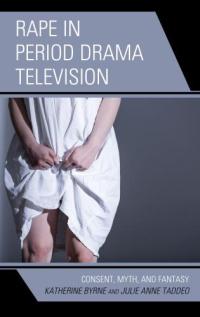Yujie Li Awarded Kluge Fellowship
Historian will be scholar-in-residence at Library of Congress


"Research is creating new knowledge." - Neil Armstrong

The film, The Soldier's Opinion, is based on Shay Hazkani's recent book, Dear Palestine: A Social History of the 1948 War (Stanford University Press, 2021). Shay is credited as a co-creator and script writer for the film. It was directed by Assaf Banitt and was produced for Israel's main cable network, Hot Telecommunication. The film will air on Israeli TV in late October 2022 and will be screened in the US as well. The film was part of the Jerusalem Film Festival i July 2022 in the Diamond Competition for Israeli Documentary Films.
Photo courtesy of Tom Weintraub Louk
Piotr Kosicki has published an article about Catholicism and the Supreme Court decisions of recent months. Read the article here.
Katherine Byrne

The BAFTSS British Cinema and Television SIG is hosting an online event on Friday 8 July at 4pm (GMT) in celebration of four book projects that have been published within the last two years.
This is in recognition of the fact that our community has produced some fantastic scholarship recently, but the challenges and uncertainty of the global situation has sometimes created challenges for promotion. As a SIG, we’re committed to providing a space for colleagues to share their work as it is developed and when it is realised, and recognise that opportunities to do this have been reduced since the pandemic began.
We’re pleased to announce that our event will be in celebration of the following books:
Hannah Andrews, Biographical Television Drama (Palgrave, 2022)
Katherine Byrne and Julie Taddeo, Rape in Period Drama Television (Lexington, 2022)
Sarah Godfrey, Masculinity in Contemporary British Cinema: Troubled Times 1990-2010 (Edinburgh, 2021)
Jaap Verhuel (ed.), The Cultural Life of James Bond: Specters of 007 (Amsterdam, 2020)
To register for attendance, please sign up here. The event will be on Teams and will last around an hour. All welcome! A link will be sent closer the time.
Colleen Woods' book "Freedom Incorporated: Anticommunism And Philippine Independence In The Age Of Decolonization" demonstrates how anticommunist political projects were critical to the United States' expanding imperial power in the age of decolonization, and how anticommunism was essential to the growing global economy of imperial violence in the Cold War era.
Richard Bell's book, "Stolen: Five Free Boys Kidnapped Into Slavery and Their Astonishing Odyssey Home" tells the gripping and true story about five boys who were kidnapped in the North and smuggled into slavery in the Deep South—and their daring attempt to escape and bring their captors to justice.
Enslaved.org: Peoples of the Historic Slave Trade is an online database compiling records of over 600,000 people who were enslaved, owned slaves or participated in the historical trade. The database was created in partnership with Matrix: MSU Center for Digital Humanities & Social Sciences, MSU Department of History, UMD College of Arts and Humanities, The Andrew W. Mellon Foundation and scholars at multiple institutions of education, research, and public exhibition.
Christopher Bonner's book "Remaking the Republic: Black Politics and the Creation of American Citizenship" chronicles the various ways African Americans from a wide range of social positions throughout the North attempted to give meaning to American citizenship over the course of the nineteenth century.
Sarah Cameron’s book, "The Hungry Steppe: Famine, Violence, and the Making of Kazakhstan" uses new Russian and Kazakh language sources to tell the story of one of the most abominable crimes of the Stalin years—and one that’s gone largely untold. Between 1930 and 1933, more than 1.5 million people—a quarter of Kazakhstan's population—perished as a result of a state-driven campaign that forced a rural, nomadic population into collective farms and factories and confiscated their livestock. Although elements of nomadic culture continued to influence Kazakh life in the post-famine years, the effort effectively eradicated nomadism as an economic practice.
Robyn Muncy, professor of history, is a guest curator of "Rightfully Hers: American Women and the Vote," an exhibit to commemorate the centenary of the ratification of the Nineteenth Amendment at the National Archives in Washington, DC. The exhibit opened in March and will run through September 2020.
The exhibition is part of a nationwide initiative exploring the generations-long fight for universal woman suffrage. Despite decades of marches, petitions, and public debate to enshrine a woman’s right to vote in the Constitution, the 19th Amendment – while an enormous milestone – did not grant voting rights for all. The challenges of its passage reverberate to the ongoing fight for gender equity today.
What is now considered a key component of citizenship - the right to vote - is often taken for granted, and is not afforded to all through the Constitution. Through this initiative, the National Archives will not only highlight the hard-won victories that stemmed from the Women’s Suffrage movement, but also remind modern-day citizens of their responsibilities associated with the right to vote.
Read more about the exhibition on the National Archives website.
"Suspect Freedoms" chronicles more than a hundred years of Cuban diasporic history in New York. One of the few studies to examine the early history of Afro-Cuban migration and politics, it employs a rich cache of primary sources, archival documents, literary texts, club records, newspapers, photographs, and oral histories to produce what Michel Rolph Trouillot calls an "unthinkable history."
Read More about Suspect Freedoms: The Racial and Sexual Politics of Cubanidad in New York, 1823-1957